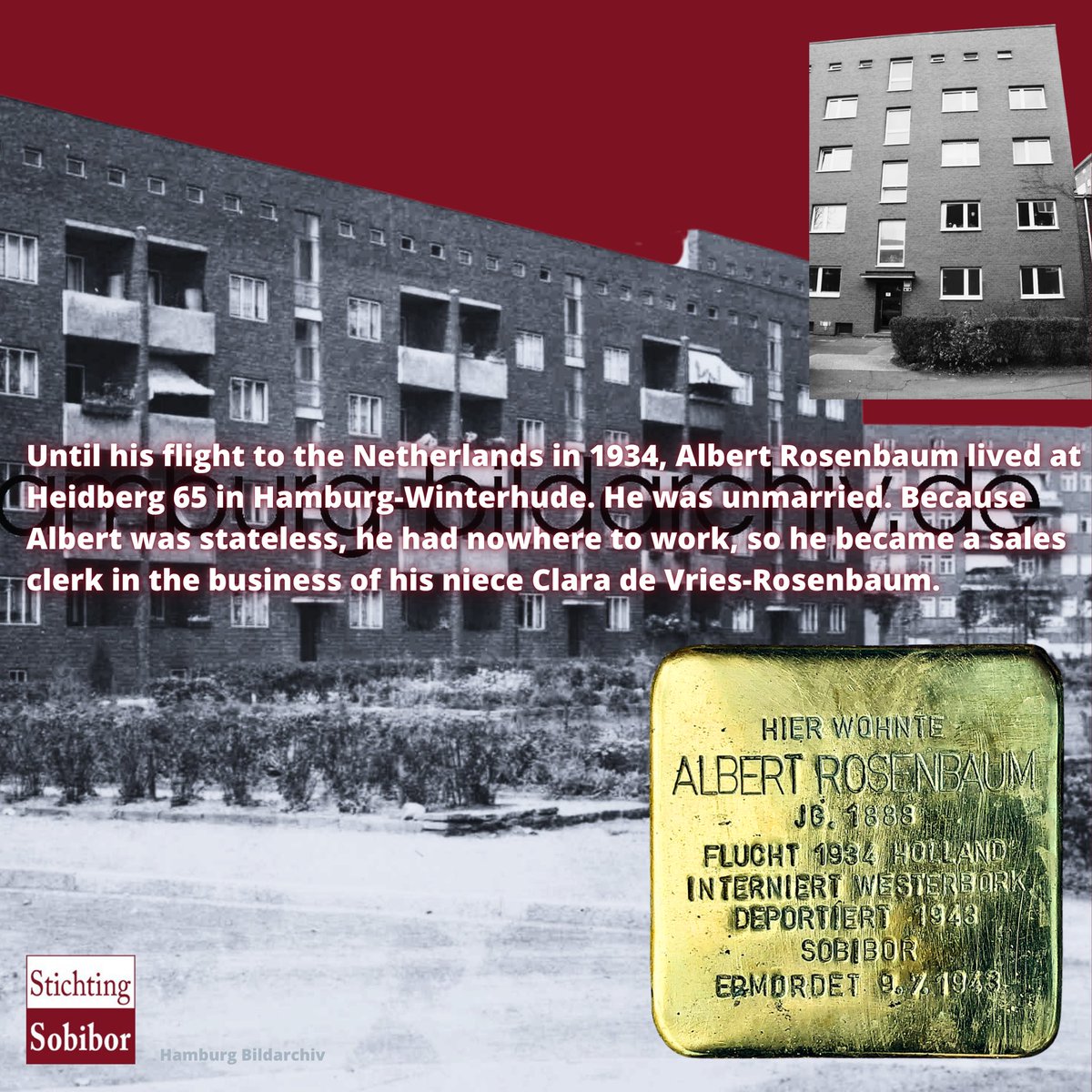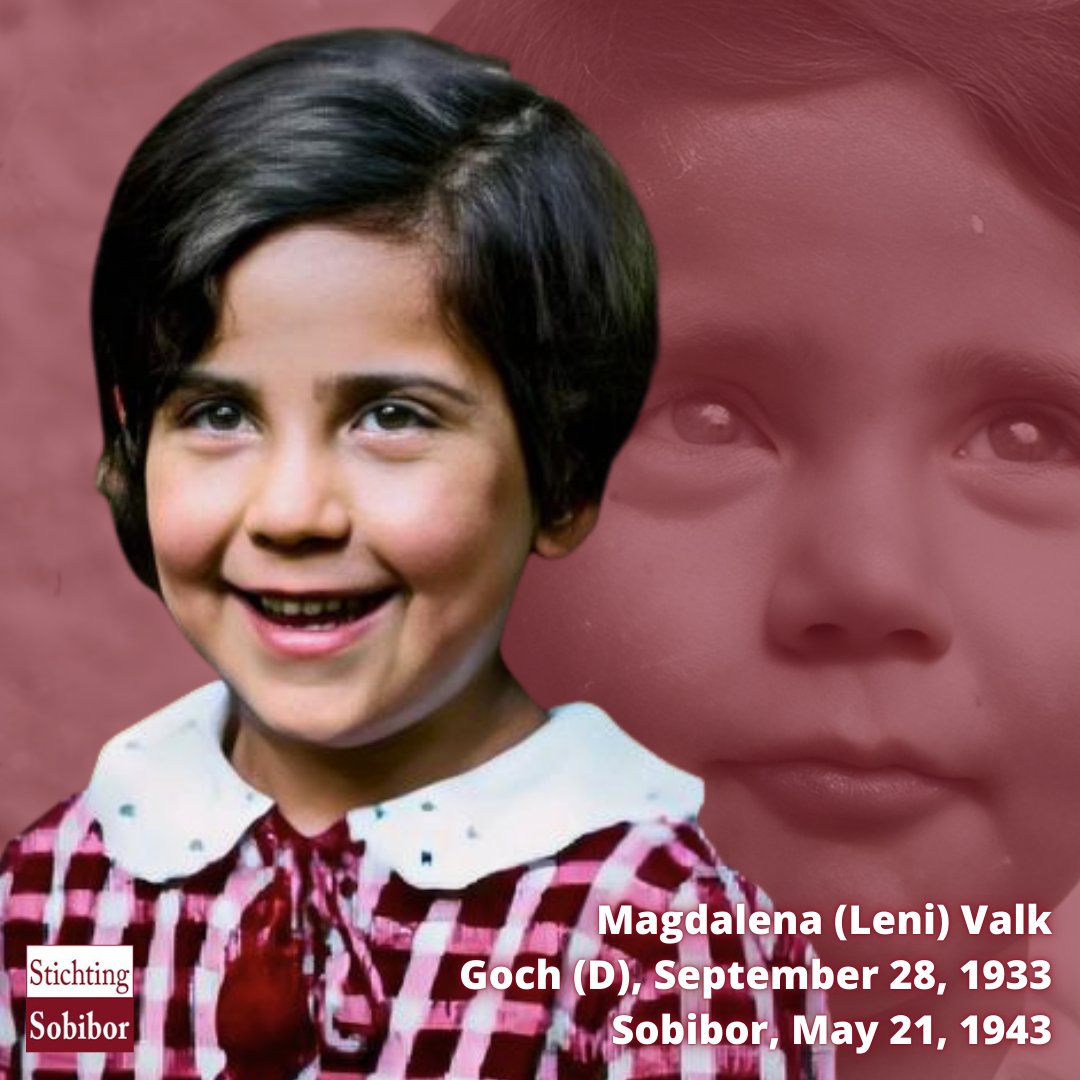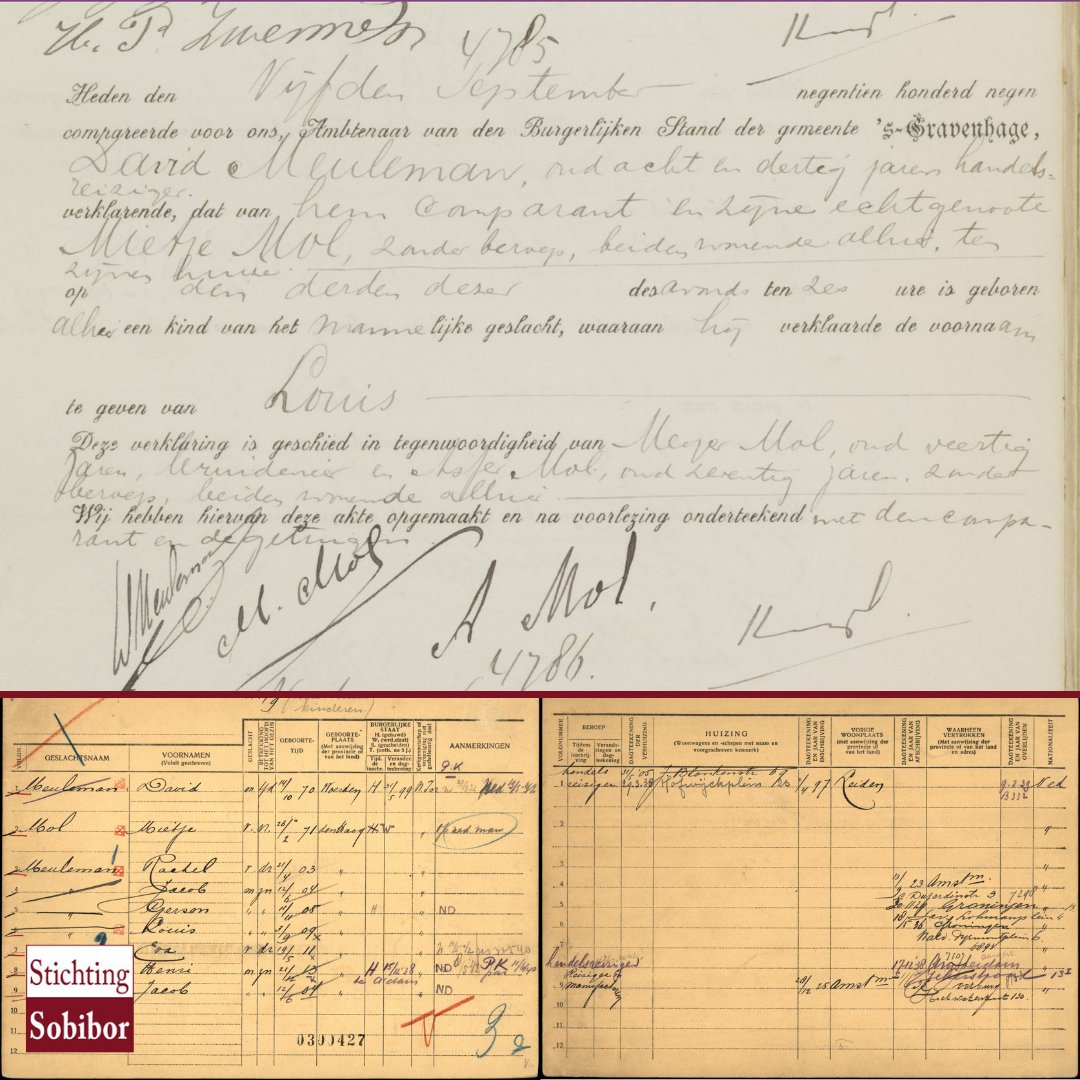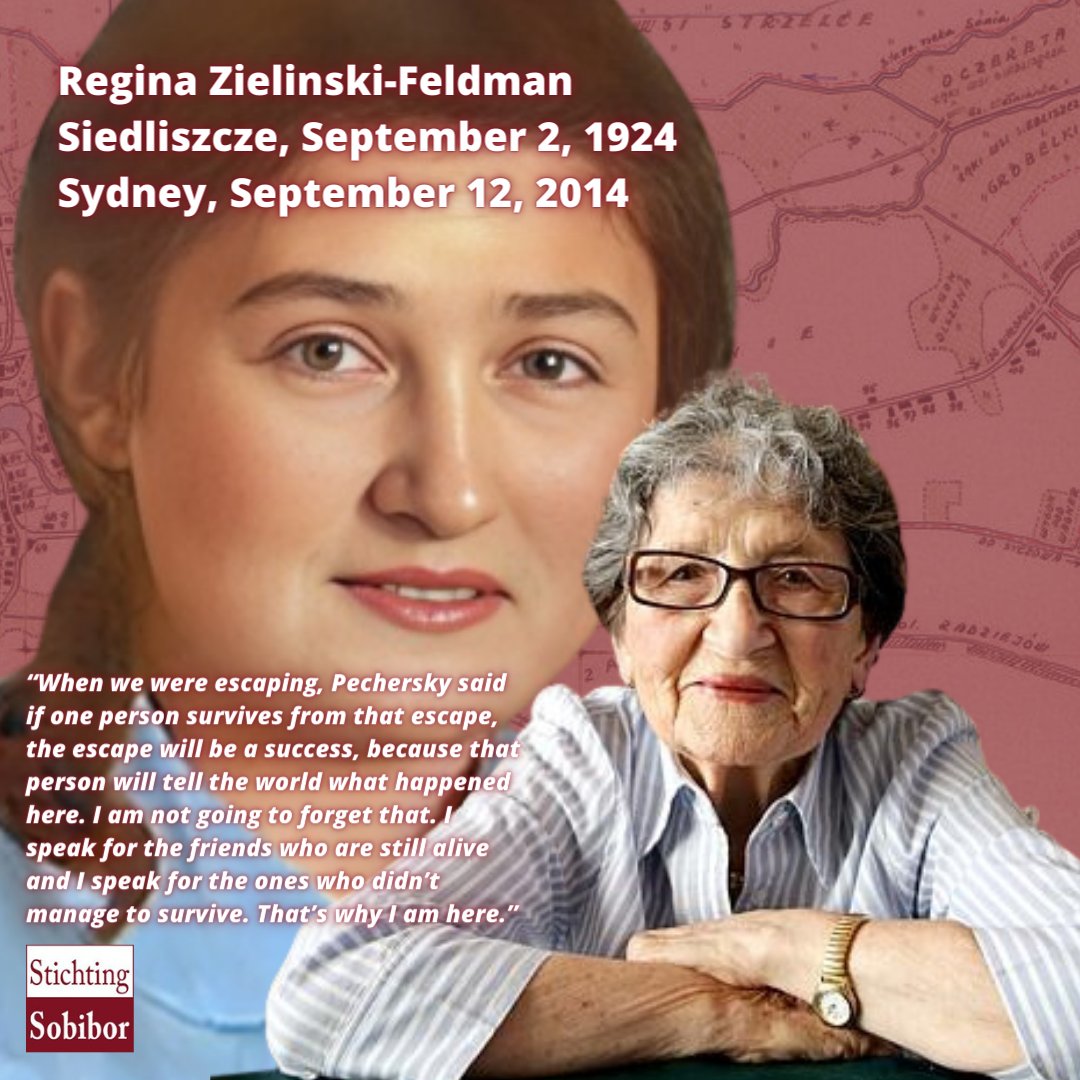04.05.1943 | #OTD Postcard from Leo to his dear boys from the ghost train with 1187 people of @kampwesterbork to death camp #Sobibor: "I wish you all the best. I'll be brave and I'll always be thinkig of you. Your father is always in your hearts." Who was Leo?👇🏼/1 

Leo is a true Maastricht native and has 2 brothers and 1 sister. Louis goes by @Kamp_Amersfoort to @AuschwitzMuseum. Max, like Leo, is murdered in #Sobibor. Tilly survives the war, as does his mother Rosalie. /2 

Single father Leo has 2 sons from his marriage to the non-Jewish Getrud Meuer (div 1937). He owns a textile store on the Grote Gracht in #Maastricht. Emiel lives with his sister's in-laws & neighbours of his store, Butcher Drielsma at Grote Gracht 23 and Jakie with his mother./3 

On August 25, 1942, Leo, like the befriended Isaack Family, had to report to police in #Maastricht before 4 p.m. and was arrested for the 1st time and taken to Westerbork.
From there the Isaacks are immediately forwarded to Auschwitz and murdered. /4
From there the Isaacks are immediately forwarded to Auschwitz and murdered. /4
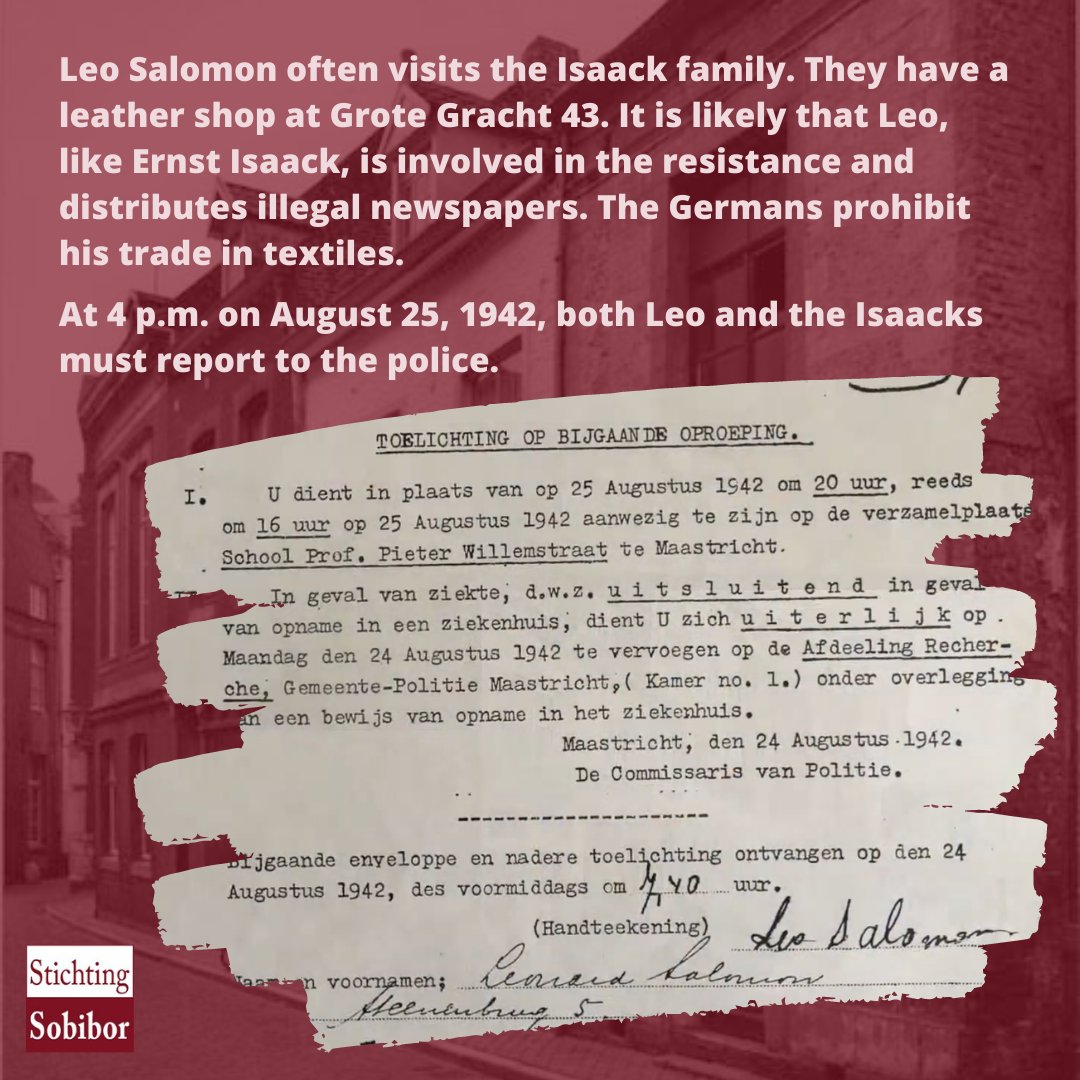
After just one week, Leo is released from @kampwesterbork because of the care for his 2 sons and returns home to #Maastricht.
On November 11, 1942 Leo is arrested for the 2nd time after presumably being betrayed by an NSB member. /5
On November 11, 1942 Leo is arrested for the 2nd time after presumably being betrayed by an NSB member. /5
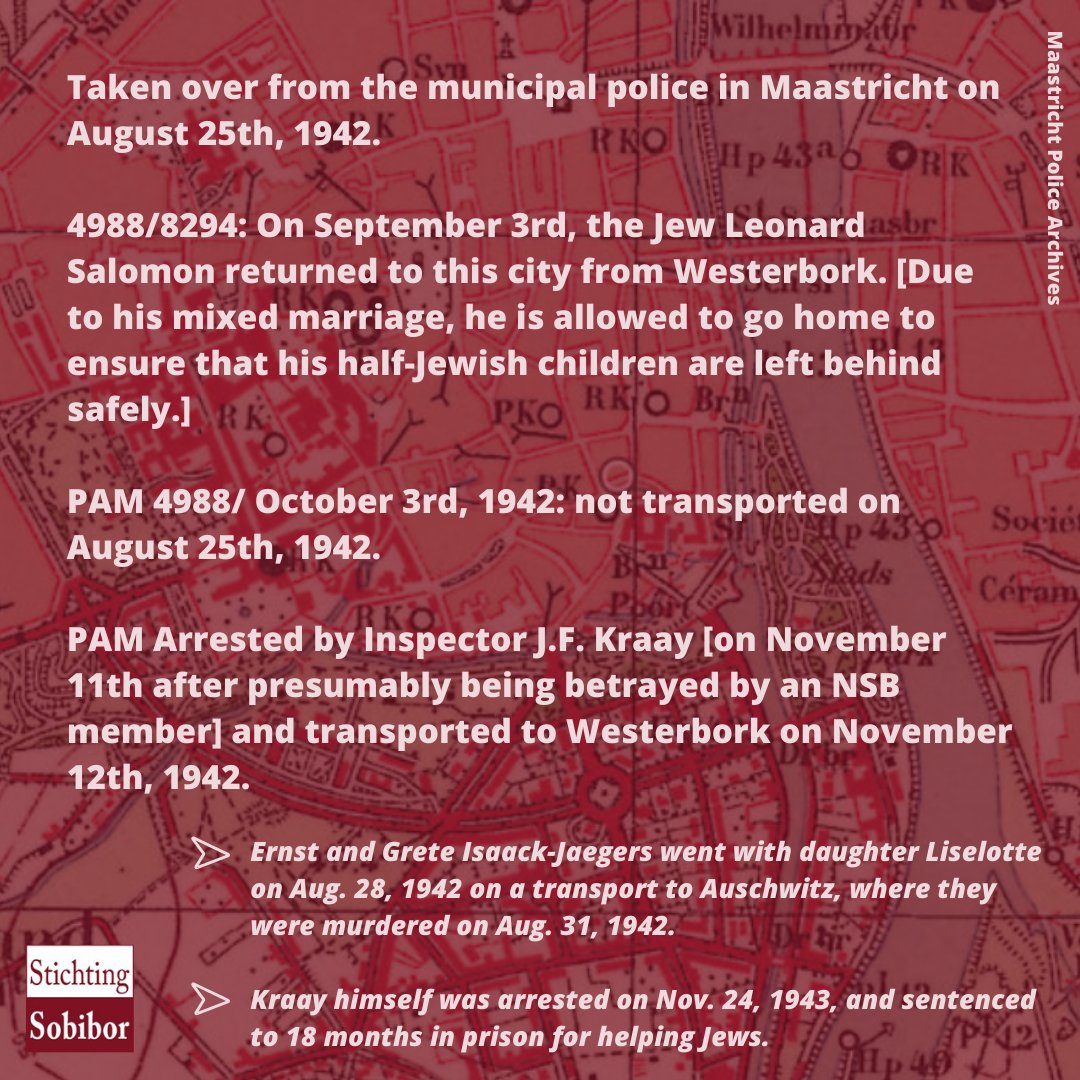
On May 4, 1943, Leo is one of 1187 deportees who go on the 10th transport to Sobibor. Before leaving the Netherlands at Nieuweschans, he throws his last greeting from the train to keep his children hopeful. He probably knows better about his fate.... /6 

On May 7, 1943, Leo Salomon was murdered in #Sobibor extermination camp immediately upon arrival.... leaving behind 1 million kisses for his 2 boys. /7 

• • •
Missing some Tweet in this thread? You can try to
force a refresh




